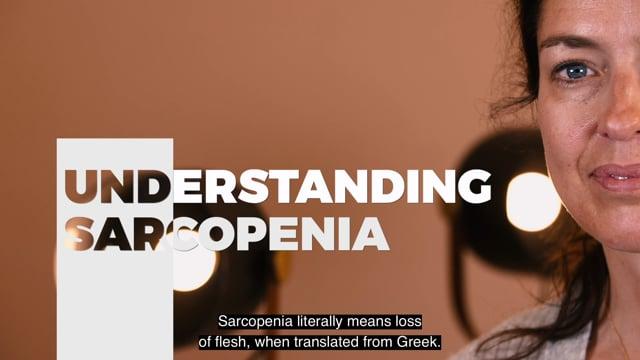
Consequences of falls of elderly persons for the healthcare team
09 Jun 2021
Falls not only have consequences for the residents and patients but also for the staff of institutions. Here are some details on the various impacts of such an episode.

09 Jun 2021
Falls not only have consequences for the residents and patients but also for the staff of institutions. Here are some details on the various impacts of such an episode.
In residential care centres, falling is a major problem. About 30-70% of elderly persons fall each year, of which 15-40% several times a year. The risk increases among residents with cognitive disorders.
Translation of Implementatieplan val- en fractuurpreventie in Vlaamse woonzorgcentra. Expertisecentrum Val- en fractuurpreventie Vlaanderen:
«Every second, a person over 65 falls somewhere in the world, every 11 seconds, a person over 65 is admitted to hospital as an emergency after a fall and every 19 minutes, a person over 65 dies from a fall.»
Beyond the severity for the patient, the consequences are numerous and just as challenging for all the teams that supervise the elderly in hospitals or in nursing and care homes.
Falls in health care facilities often have serious consequences, such as bruises or broken bones.
Within 12 months after a fall with a hip fracture, 35% of people over 50 die. The increased risk of mortality persists for up to 10 to 15 years after the hip fracture.
Falls not only have physical, but also psychological consequences, such as social isolation, depression and fear of falling.
All of these consequences go hand in hand with increased health care costs. The high number and serious consequences of falls therefore underline the need to actively work on fall prevention, through fall prevention protocols or the implementation of a complete system using artificial intelligence such as ISA.
Picking up and settling down the patient requires significant physical and psychological efforts (which is added to fatigue and depends on the physical capacities of each individual). In terms of workload, the caregiver will spend time reassuring the patient, taking his blood pressure, organizing the necessary examinations and filling in the fall registry …
In addition, the nurse sometimes mobilizes an additional member of the team, calling on a team that is probably already swamped.
The staff took the fall head-on and did not come out unscathed. This can then lead to a feeling of helplessness, especially with patients that fall several times. Many professionals share the impression that, regardless of the quality of the care provided, it’s something inevitable, an endlessly repeating cycle…
Jérôme Laurent, MintT clinical advisor:
«The feeling of helplessness is often enhanced by the natural and necessary empathy of caregivers. Often, they get weary and end up not wanting to go to the room of the restless patient who’s crying in his bed. There can be a feeling of guilt, a distance between the image of professional ethics and what they are capable of giving at that time.»
The phenomenon of falling among elderly persons has to be considered as a medical problem. This allows to better protect or treat patients and helps the caregivers to distance themselves and free themselves from guilt.
It’s essential that the caregiver doesn’t have to face the fall alone: the incident should not remain between the person on the ground and the caregiver.
Among the tools aimed at supporting caregivers in their mission, ISA is a fall detection solution. The caregivers are warned when there is an abnormal exit from the bed (that has to be checked out) or in the event of a fall. This relieves caregivers and decreases their mental load.
The implementation of a fall prevention plan helps to better understand these phenomena and therefore, to reduce the risk of a serious injury. In addition, it’s a reassurance for patients and their families.
Better yet, a fall detection system like ISA can also help reduce the risks on several levels.

Looking for an easy way to install a reliable fall detection solution in your facility? Look no further than Mintt. We have streamlined the installation process to make it hassle-free and efficient.

Falls are a major public health problem, particularly among older people. According to the World Health Organisation (WHO), approximately 28-35% of people over 65 suffer at least one fall yearly.

In this episode of Mintt Academy, Sandra De Breucker, Head of Geriatrics of the Erasmus Hospital tells you more about how to better understand sarcopenia.
This website uses cookies
We use cookies to provide you with a better visitor experience. Our website tracks three levels of cookies, you can go to cookie settings to manage your preferences at any time. You can read more about what cookies are and which cookies we collect in our privacy policy.
Cookie settings
We use cookies to provide you with a better visitor experience. Our website tracks three levels of cookies. You can adjust your preferences at any time. You can read more about what cookies are and which cookies we collect in our privacy policy.
Adjust your preferences
Functional cookies are necessary cookies that ensure that the website functions properly and that your preferences (e.g. language, region) are stored properly.
The cookies we use are: essential cookies, craft cms and vimeo
Analytical cookies allow us to analyze the use of the website and to improve the visitor experience.
The cookies we use are: Google Analytics, LEADforensics and leadinfo
Marketing cookies aim to personalize your experience and send you relevant content and offers on this and other websites.
The cookies we use are: Linkedin Insights, Google ads